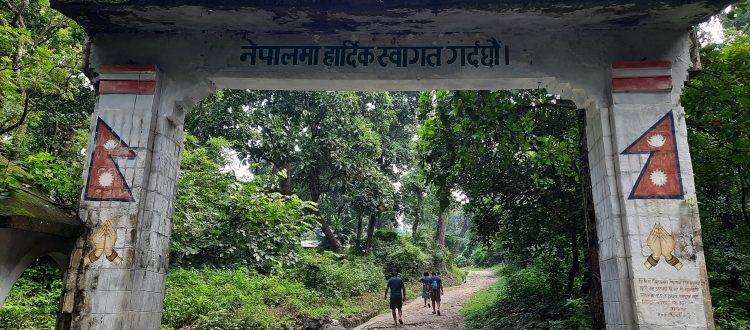Into Valmiki to meet the Van Rakshaks
No amount of textbooks and photographs prepare you for your first field visit. One arms themselves with the knowledge gathered from those who’ve walked where one hasn’t. In my case, that meant quite a lot of “What do I pack???” texts to Mahima Sharma, the Programme Officer, Wildlife Crime Control Division (WCCD) at Wildlife Trust of India (WTI).
And so, it began!
The entire WCCD team and I boarded the train from Delhi to Gorakhpur. Usually one wouldn’t find it worth mentioning that it is a train ride, however, for me – this was my first ever train ride! I was struck with anxiety and excitement in the most perfect and balanced manner. The rain Gods decided to make this journey an adventurous one as torrential rains were the stowaway, slowing down our journey and washing away roads that we were yet to travel.
Unprepared for the downpour, our journey had a massive setback, experiencing delay for a full 12 hours. Drained from the journey that seemed never-ending, we showed up worse for wear, at a welcoming guest house nestled on the borders of Nepal and India, perched at the border of the Valmiki Tiger Reserve, Bihar. Valmiki Tiger Reserve, Bihar, is the only tiger reserve present in the state of Bihar.
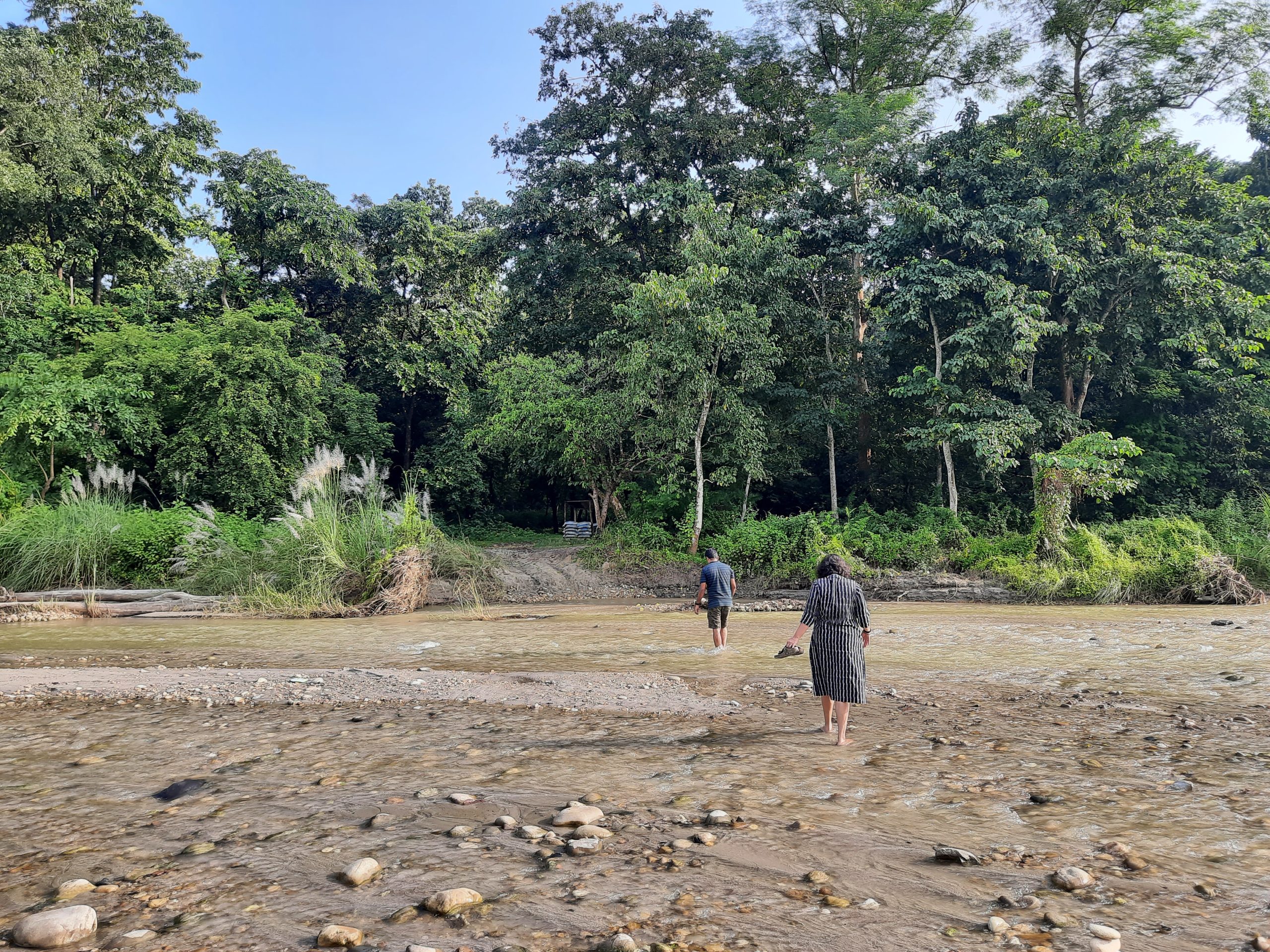
Trekking through streams and forests to reach our destination | Photo by Monesh Singh Tomar
The fact that we were at the border of the Tiger Reserve and the international border of Nepal meant minimal, largely no signal service on our cell phones. Cast into the wilderness, under a sky brimming with stars and phones that doubled as useless paperweights, we rested, finally after what felt like a day full of different modes of transport.
At this point, you must be curious to understand why we have undertaken this long journey into the wilderness, away from amenities. The answer is to conduct wildlife crime prevention training for the frontline forest staff deployed to protect the Valmiki Tiger Reserve. Since 2001, WTI has been working with the state Forest Departments across the country to conduct wildlife crime prevention trainings under the Guardians of the Wild (Van Rakshak) project. These trainings focus on the specific aspects of wildlife crime control such as investigation, patrolling, important sections under the Wildlife (Protection) Act 1972, case documentation, etc. Over 19000 frontline forest staff have been trained under this project. The trainings are conducted in a phased manner which begins with the Fresher training wherein the first leg of the training is conducted and carried further to 2 refresher trainings over a course of 2 years.
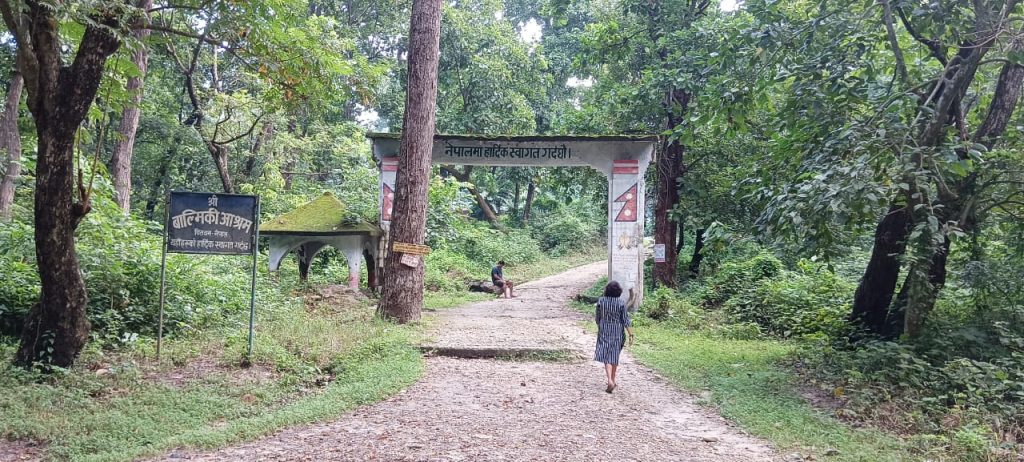
Walking Into the Valmiki landscape | Photo by Debobroto Sircar
At present-day Valmiki Tiger Reserve, we saw lines on lines of forest officers, clad in khaki uniforms, queued at the Arrival Desk in the Training Hall. An astonishingly balanced ratio of men and women accounting for a total of 35 participants were eager to absorb the latest dissemination of information given to them by the WTI-WCCD team. And what sessions! Wildlife crime, Cybercrime, undercover operations, illegal wildlife article identifications, understanding Wildlife (Protection) Act, 1972 – no topic was left untouched. The forest staff’s familiarity and comfort with the team became obvious, and their fondness for learning the knacks and nuances of the law they upheld was heart-warming. They actively debated points of law, hanging onto every definition, identifying illegal wildlife articles, and undergoing rigorous in-field crime scene analysis.
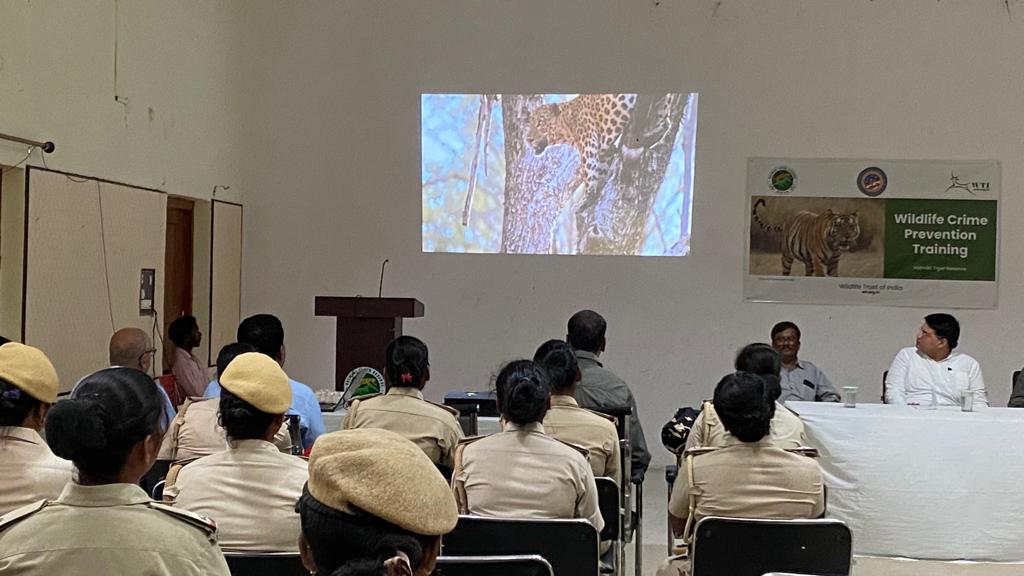
Ongoing training sessions at Valmiki TR with Van Rakshaks in attendance
The evenings saw the hardworking protectors of the forest come together for dinners that rang with laughter interspersed with lively discussions reflecting on the learnings of the day. I was actively pulled into a discussion on law by interested forest rangers, who were keen to understand the impact their enforcement and the importance of case filing had on the progression of cases in court. It was heartening to see the female forest guards step up, take the lead in discussions, and share their experiences with us on their challenges.
Posted miles away from their homes, and families, these women were enthusiastic and passionate about their duties as forest guards. They spoke to me in great detail about how helpful and powerful our law is when it comes to the protection of the wild and its inhabitants. We went on to discuss where they were posted and how many animals they’d seen in the wild – their dedication evident in the great detail to which they remember all the times that they have been in the forest.

Outdoors sessions of VRP Training workshop
With our bellies full of wonderful, delicious food and stories of these inspiring women, it was time to head home to our urban jungle – Delhi!
We concluded the Training session and bid adieu to the frontline forest staff stationed at the Valmiki Tiger Reserve in Bihar. A far more content WTI team boarded the train, pleased with the level of enthusiasm and commitment displayed by these brave forest rangers, and touched by their perseverance in even the hardest of times.
Kudos to the Van Rakshaks!
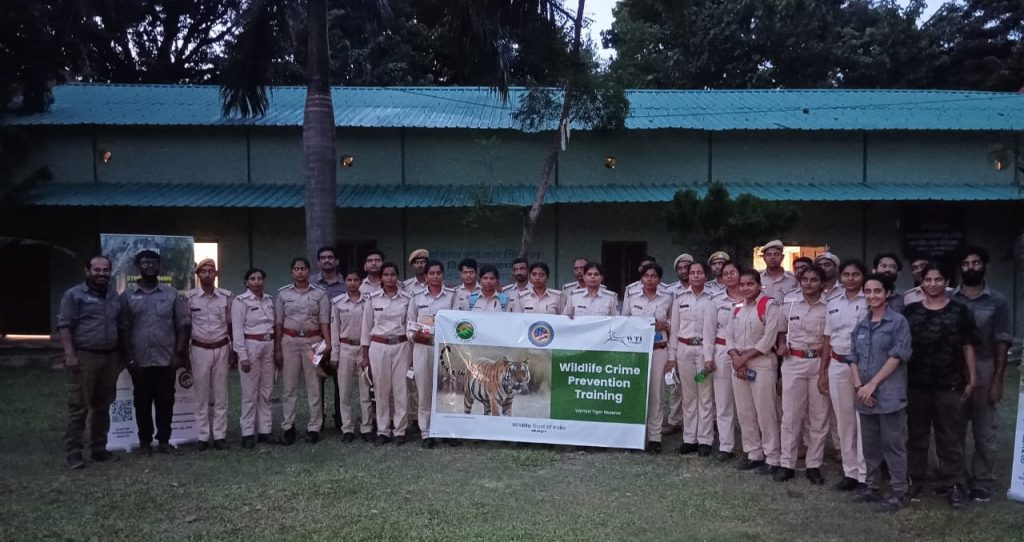
by Divya Kashyap

